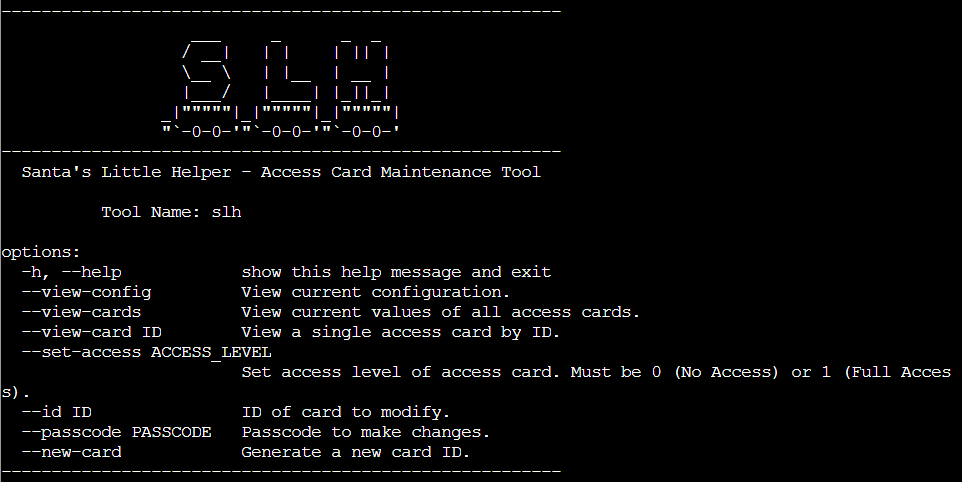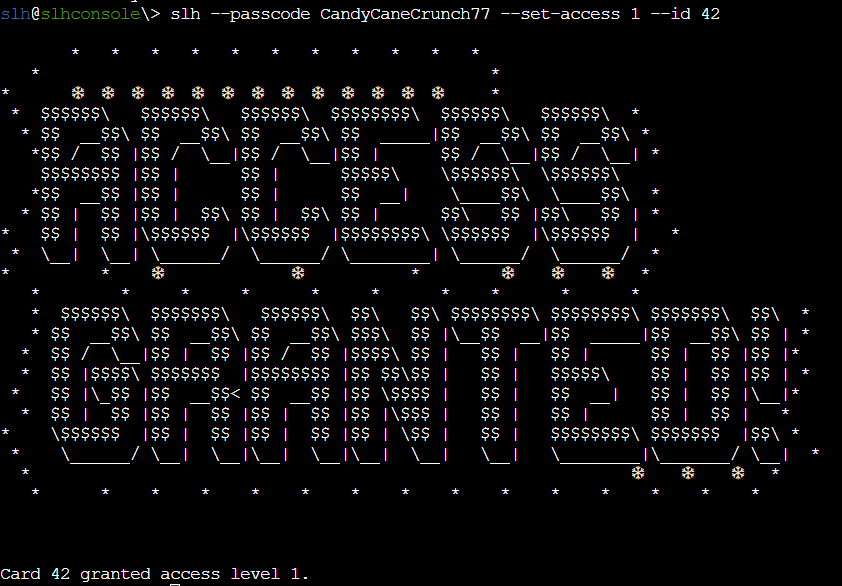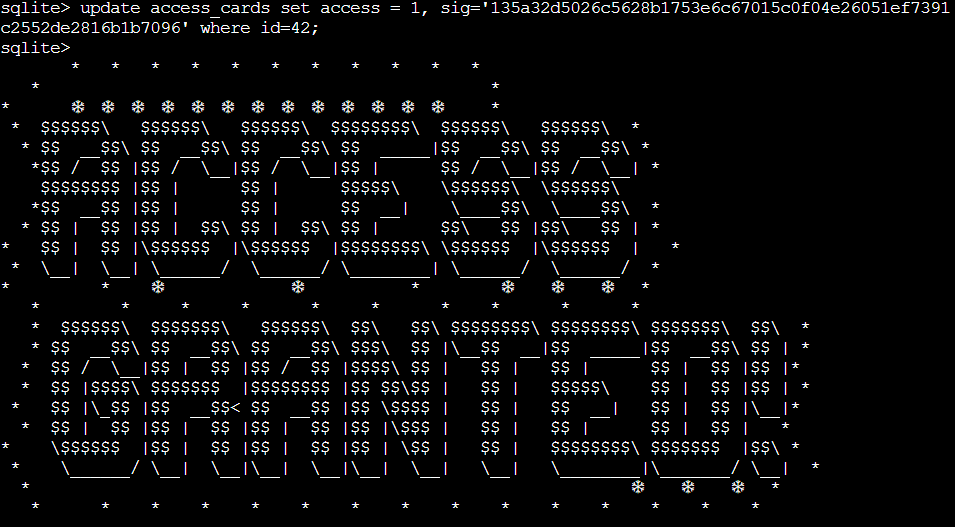Holiday Hack Challenge 2024 WriteUp - Hardware Hacking 101 Part 2
Posted: Nov 26, 2024 | ~ 3 mins read time#ctf #hhc-2024 #hardware
Silver Objective
Our goal here was to grant card number 42 with full access using the Santa’s Little Helper (SLH) terminal tool.

First, I tried just straight up setting the access but of course this challenge wasn’t that easy to solve.
slh@slhconsole\> slh --set-access 1 --id 42
Invalid passcode. Access not granted.
I needed credentials and the hint was:
It is so important to keep sensitive data like passwords secure. Often times, when typing passwords into a CLI (Command Line Interface) they get added to log files and other easy to access locations. It makes it trivial to step back in history and identify the password.
This made me think of the history command that allows you to see recent commands executed in the terminal.
slh@slhconsole\> history
1 cd /var/www/html
2 ls -l
3 sudo nano index.html
4 cd ..
5 rm -rf repo
6 sudo apt update
7 sudo apt upgrade -y
8 ping 1.1.1.1
9 slh --help
10 slg --config
11 slh --passcode CandyCaneCrunch77 --set-access 1 --id 143
12 df -h
13 top
14 ps aux | grep apache
15 sudo systemctl restart apache2
16 history | grep ssh
17 clear
18 whoami
19 crontab -e
20 crontab -l
21 alias ll='ls -lah'
22 unalias ll
23 echo "Hello, World!"
24 cat /etc/passwd
25 sudo tail -f /var/log/syslog
26 mv archive.tar.gz /backup/
27 rm archive.tar.gz
28 find / -name "*.log"
29 grep "error" /var/log/apache2/error.log
30 history
And wouldn’t you know it on line 11, we see someone else ran slh and entered the password in clear text.
So to complete this objective, I simply needed to run the following command

Gold Objective
For this, I needed to make the same change to access card 42 but this time going directly to the database.
I noticed there was an access_cards file in the current directory and when running the file command, it looked to be a SQLite database
slh@slhconsole\> ls -al
total 156
drwxrwxr-t 1 slh slh 4096 Nov 26 02:06 .
drwxr-xr-x 1 root root 4096 Nov 13 14:44 ..
-r--r--r-- 1 slh slh 518 Oct 16 23:52 .bash_history
-r--r--r-- 1 slh slh 3897 Sep 23 20:02 .bashrc
-r--r--r-- 1 slh slh 807 Sep 23 20:02 .profile
-rw-r--r-- 1 root root 131072 Nov 26 02:06 access_cards
slh@slhconsole\> file access_cards
access_cards: SQLite 3.x database, last written using SQLite version 3040001, file counter 5, database pages 32, cookie 0x2, schema 4, UTF-8, version-valid-for 5
So from there, I ran the command sqlite3 access_cards to open a session with the database and start poking around.
My first command was to see what tables were available
sqlite> .tables
access_cards config
The access_cards table was pretty much expected but I did want to verify the columns
sqlite> pragma table_info(access_cards);
0|id|INTEGER|0||1
1|uuid|TEXT|0||0
2|access|INTEGER|0||0
3|sig|TEXT|0||0
Then, I moved on to look at the config table and what it contained
sqlite> pragma table_info(config);
0|id|INTEGER|0||1
1|config_key|TEXT|0||0
2|config_value|TEXT|0||0
sqlite> select * from config;
1|hmac_secret|9ed1515819dec61fd361d5fdabb57f41ecce1a5fe1fe263b98c0d6943b9b232e
2|hmac_message_format|{access}{uuid}
3|admin_password|3a40ae3f3fd57b2a4513cca783609589dbe51ce5e69739a33141c5717c20c9c1
4|app_version|1.0
So it not only gave me the HMAC secret but also the message format I needed to use when throwing this into CyberChef.

From there, it was simply a matter of running an update command to set the access and sig field
sqlite> update access_cards set access = 1, sig='135a32d5026c5628b1753e6c67015c0f04e26051ef7391c2552de2816b1b7096' where id=42;

